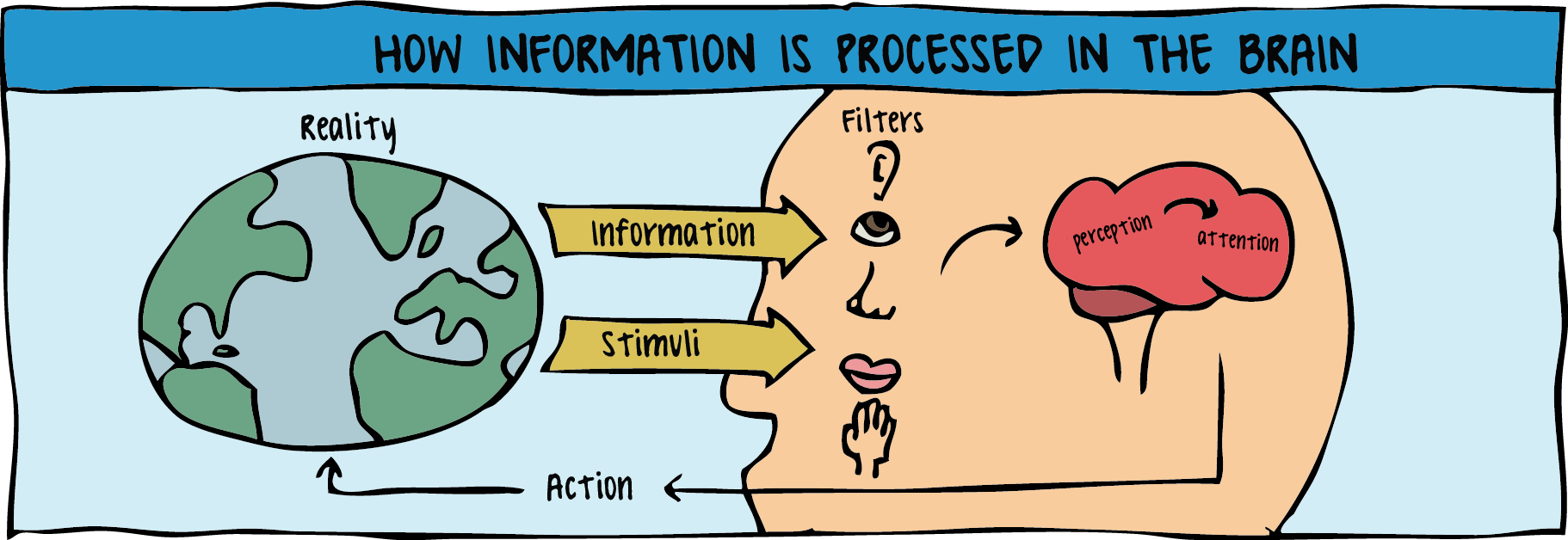In the previous video, more than 50% of people watching the “The Invisible Gorilla” video for the first time, do not see the gorilla. If you've seen the video before, did you notice the other changes? Probably not. Only 17 percent of those who were familiar with the original video noticed the unexpected events in the new video [Simons, 2010]. What's happening?
Although the phenomenon has long been known, recent studies show that it is much more common than anyone realized, and that it is one of the major causes of accidents and human error. In 1992, Arien Mack and Irvin Rock, two researchers at MIT, coined the term inattentional blindness to describe this phenomenon. Inattentional blindness is the failure to notice a fully visible but unexpected object because attention was engaged on another task, event, or object. [Mack, 1998] It happens to all of us. Seeing may seem like a conscious process, but the truth is, most of it is largely unconscious. Our senses are bombarded with so much information, sights, sounds, smells, etc., that our minds cannot process it all.
Watch the video
Yale University's Brian Scholl discusses how our brains deal with the information overload [National Geographic, 2013].
To cope with the sensory overload problem, we develop filters. Filtering helps the brain deal with all the stimuli and information that bombards it. Our changing culture, values, and beliefs shape our filters and influence how and what we notice, and how we react. Filters help focus our attention on a single task or part of the environment and ignore everything else. What we filter in or filter out depends on where we put our attention. Even though the brain can scan 30 to 40 pieces of information (e.g., sights, sounds, smells) per second, its limited resources mean that most of it is immediately forgotten. This prevents us from becoming overwhelmed.
Attention is something we have to learn. Through time and practice, we have taught our brain to recognize which signals are important and to prioritize them first so we can quickly redirect our attention to them. And, just as attention is learned, it can also be relearned. [Davidson, 2011]

"Have you noticed how nobody ever looks up? Nobody looks at chimneys, or trees against the sky, or the tops of buildings. Everybody just looks down at the pavement or their shoes. The whole world could pass them by and most people wouldn't notice."
― Julie Andrews Edwards, The Last of the Really Great Whangdoodles